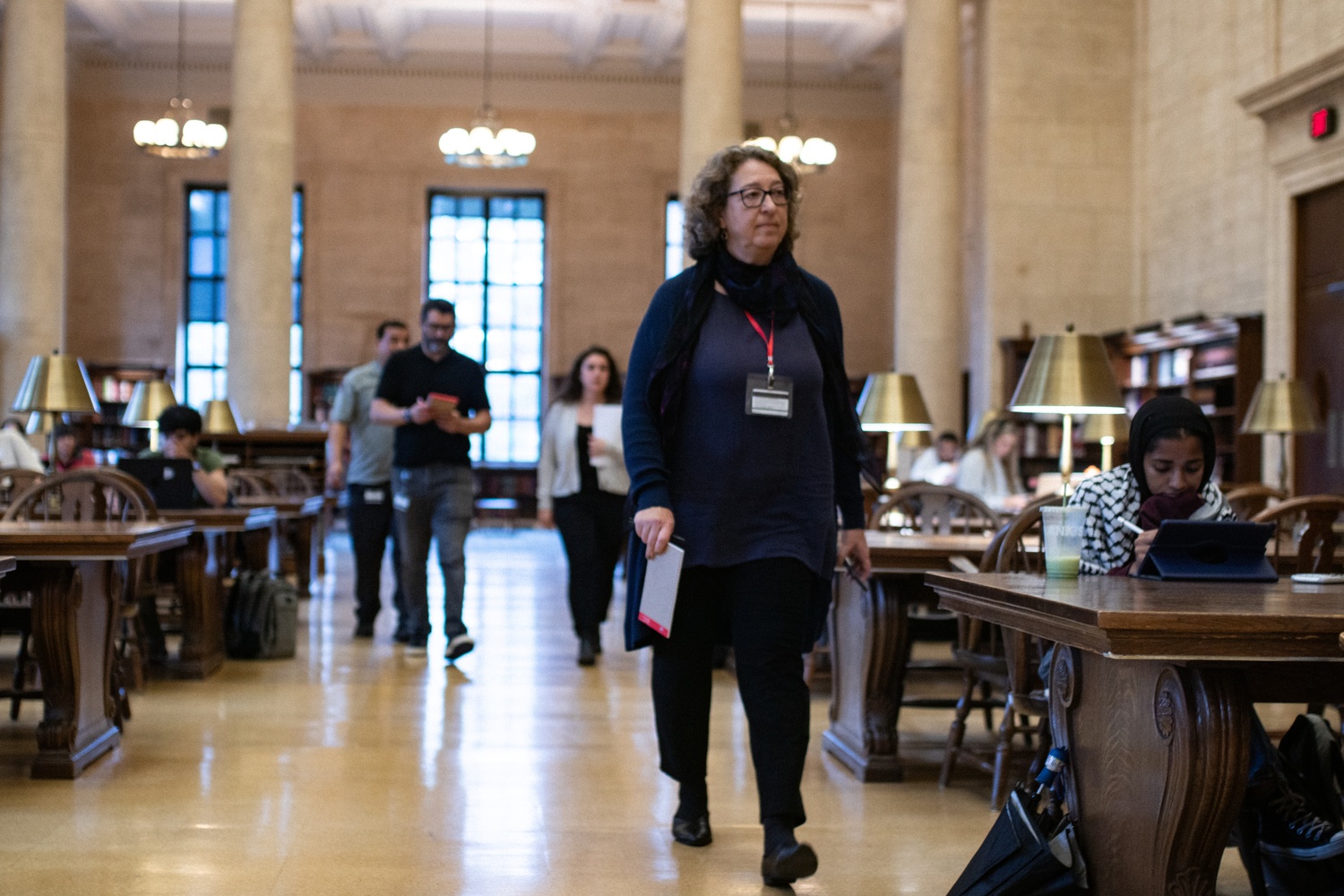
News
Harvard Grad Union Agrees To Bargain Without Ground Rules

News
Harvard Chabad Petitions to Change City Zoning Laws

News
Kestenbaum Files Opposition to Harvard’s Request for Documents

News
Harvard Agrees to a 1-Year $6 Million PILOT Agreement With the City of Cambridge

News
HUA Election Will Feature No Referenda or Survey Questions
Whether Study-Ins Are Protests Doesn’t Matter. Whether They’re Disruptive Does.
Harvard has faced a host of genuinely difficult questions about how to navigate protest this past year. Responding to students and faculty silently studying in the library isn’t one of them.
Since September, pro-Palestine students and sympathetic faculty and staff have held protests during which they work quietly in libraries with signs displayed around them. The University has responded, to no avail, with short library access suspensions. Now, with the study-ins showing no sign of abating, it’s high time it abandon this ill-fated new policy and recenter on a more reasonable standard: whether a protest is actually disruptive.
A faculty and staff study-in last week seems to us the exception that proves the rule. In this instance, protesters displayed signs that were totally blank, and library staff did not ask them for their ID cards, seeming to indicate the University does not intend to punish them.
If this is Harvard abandoning the library protest policy altogether, great. If, as seems more likely, it saw this study-in as less of a protest because it lacked printed signs, we feel obliged to say that this is a distinction without a difference. We struggle to imagine the principle by which an acceptable protest becomes unacceptable because a demonstrator’s tent card has words on it.
Determining what constitutes protest as such isn’t easy, which is why the University should get out of the business of doing so. Rather than straining to distinguish demonstrators from demonstrator-like students, the University should regulate speech — of all kinds — based on its disruptiveness.
Don’t take our word for it — this is, more or less, the standard the University has used since 1970.
Promulgated after the Vietnam War protests and reaffirmed numerous times hence, the primary document articulating Harvard’s position on protest, the University-Wide Statement on Rights and Responsibilities, declares that “reasoned dissent plays a particularly vital part in [the university’s] existence.” Only then does it go on to lay out the conditions under which the University might limit such expression, including violation of the essential rights of other affiliates and undue interference with their daily activities.
We’ll readily admit that study-ins would meet the latter criterion if they meaningfully disrupted the quiet study of Harvard’s library-goers. But it requires a painfully strained reading of the Statement — and real disregard for what it has to say about reasoned dissent — to conclude that these study-ins fit the bill. In any event, that judgment plainly does not depend on whether we call them protests or feature lettered signs.
The University seems to have forgotten that it believes protest has a place at an institution dedicated to truth-seeking. Protest may not be as central to the academic mission as the ability to study in a library. But if we can have both — and, many of us having studied through a study-in, we’re confident that in this case we can — we should.
The fact is, not every demonstration is disruptive, certainly not disruptive enough to justify curtailing it. As protesters continue to test its study-in policies, administrators would do well to find a posture that strikes a more sensible balance — and to put the blustering of a hostile Congress out of mind as it does.
This staff editorial solely represents the majority view of The Crimson Editorial Board. It is the product of discussions at regular Editorial Board meetings. In order to ensure the impartiality of our journalism, Crimson editors who choose to opine and vote at these meetings are not involved in the reporting of articles on similar topics.
Have a suggestion, question, or concern for The Crimson Editorial Board? Click here.
Want to keep up with breaking news? Subscribe to our email newsletter.

